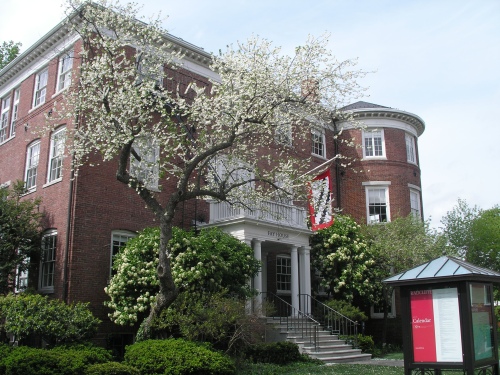Google d’Espalier
 Yesterday I decided the language needs a new term: “Google d’espalier.”
Yesterday I decided the language needs a new term: “Google d’espalier.”
It derives from the French “esprit d’espalier,” or “staircase wit,” meaning the riposte or witticism that occurs to a person as he or she is leaving the party, well after it would have been most apropos. They usually end up in diaries and memoirs, though some people have been able to use them in carefully writing up the occasion for a newspaper.
“Google d’espalier” is the sad triumph of looking up some fact after it would have been useful—after a discussion has moved on, an argument has died down, or the person seeking information is gone, no longer able to be helped or impressed.
Yesterday, for example, a visitor to Longfellow National Historic Site asked us whom Radcliffe College was named after. After he departed, I was able to cadge a wireless signal and determine that the name came from Lady Ann Mowlson, née Radcliffe (1576-1661), who endowed the first scholarship at Harvard—i.e., someone with as early but tenuous a connection to the Cambridge college as John Harvard had.
But of course by then it was too late.
(Photograph above of Fay House, the first building acquired by Radcliffe and renovated by Alexander Wadsworth Longfellow, Jr., with funds from Alice Longfellow, as shown on the handsome Historic Buildings of Massachusetts archive.)


No comments:
Post a Comment